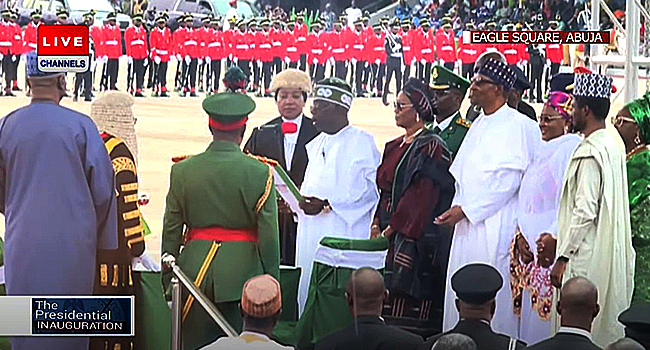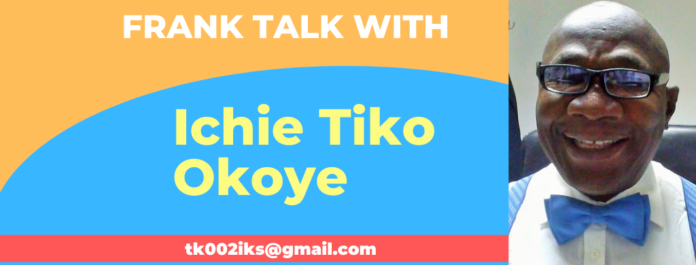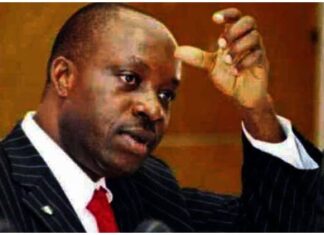Is Asiwaju Bola Tinubu really the 16th Nigerian President?

By Tiko Okoye
A famous essayist once intoned that if you repeat the same thing over and over again it soon becomes conventional to accept it as the truth even though it started off as a blatant lie. I kept mulling over this cryptic axiom as I read and heard Asiwaju Bola Ahmed Tinubu addressed as the 16th Nigerian President in the print and electronic media after being sworn into office on May 29. But is he really?
In a piece I wrote in commemoration of his inauguration, I referred to Tinubu as Nigeria’s 6th President. But I must have read or heard him called the 16th President not less than 100 times between last Monday and this morning; so much so that I’ve started attaching that numeral to him, not because it’s better to join them if you can’t beat them, but because I reasoned that so many knowledgeable people can’t be wrong at the same time and I can’t presume to know more than all of them. But can’t they be wrong?
“An error,” canvassed American composer John Cage, “is simply a failure to adjust immediately from a preconception to an actuality.” In seeking to so adjust, one must be mindful of relevant wise sayings of those who have meritoriously earned their spurs.
The first is American novelist Pearl Buck who intoned: “Every great mistake has a halfway moment, a split second when it can be recalled and perhaps remedied.”
But by striving not to forgo that split-second opportunity and attempting to remedy an aberration one must equally be mindful of the poignant admonition of English essayist and poet Samuel Taylor Coleridge to the effect that “Truth is a good dog; but beware of barking too close to the heels of an error, lest you get your brains kicked out.” What then is to be done – and how?
I believe that the most important thing under such circumstances is to assume the posture of an honest inquirer, not an irritating know-all, lest the hunter easily and readily morphs into the hunted.
My take is that we must start by calling a spade a spade, not a garden tool in more general terms. If we go by the general definition of a President as the person in charge of a country, then all civilians and military autocrats alike who have presided over the affairs of Nigeria since flag independence on October 1, 1960 can be dubbed as presidents – and there are 17 of them between 1960 and 2023, not 16 as is being erroneously canvassed.
But the appellation more properly and rightly describes a person who has been ELECTED to head of government and head of state in a PRESIDENTIAL SYSTEM of government. Going by this stricter and more purposeful definition, it becomes crystal-clear that Nigeria has experienced six presidential administrations to-date, with Tinubu as No.6. Others are:
(1) Shehu Shagari 1979-1983
(2) Olusegun Obasanjo 1999-2007
(3) Umaru Yar’Adua 2003-2009
(4) Goodluck Jonathan 2009-2015
(5) Muhammadu Buhari 2015-2023
As for the others, some served/ruled as unelected ceremonial president/head of state but not head of government (Nnamdi Azikiwe 1963-1966 and Nwafor Orizu 1965-1966); elected head of government but not head of state (Abubakar Tafawa Balewa 1960-1966); unelected head of a neither-here-nor-there interim national government (Earnest Shonekan 1984); and unelected head of state/head of government (Umunnakwe Aguiyi-Ironsi 1966, Yakubu Gowon 1966-1975, Murtala Mohammed 1975-1976, Olusegun Obasanjo 1976-1979, Muhammadu Buhari 1984-1985, Ibrahim Badamasi Babangida 1985-1994, Sani Abacha 1994-1998 and Abdulsalami Abubakar 1998-1999).
READ ALSO: Diri, Sylva, 14 others make INEC final list for Bayelsa gov poll
The findings of my personal research demonstrated that all documents listing Nigerian Presidents/Head of State from flag independence to date miss out one crucial name – that of Dr. Abyssinia Nwafor Orizu. This is not only uncharitable to the memory of the iconic politician and First Republic elder statesman who served as the President of the First Senate, but it also represents a totally unacceptable falsification of history. It must be noted that, in compliance with the relevant articles of the Constitution, Nwafor Orizu was sworn into office as the Acting President of Nigeria from late 1965 to January 15, 1966, the date of Nigeria’s first military coup, while Dr. Nnamdi Azikiwe was away abroad on vacation.
The point being made is that if Chief Earnest Shonekan was appointed the Head of the Interim National Government (as in acting head of an unconstitutional contrivance) that lasted from August to November 1993, and is still officially numbered among ‘Past Nigerian Presidents,’ then Nwafor Orizu, acting under a constitutional democratic dispensation, deserves to be recognized the more, especially when a court of competent jurisdiction adjudged the ING to be null, void and ultra vires, meaning that it ought to be expunged from history books as if it never happened.
What do you think folks…should Tinubu continue to be called the 16th President of Nigeria or should we set the records straight ab-initio by more appropriately calling him the 6th or – if we want to brag that our ‘democratic’ experience is more apparent than real – correctly dub him as the 17th?











